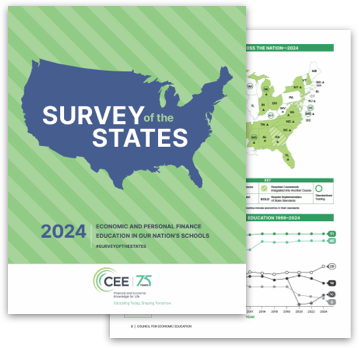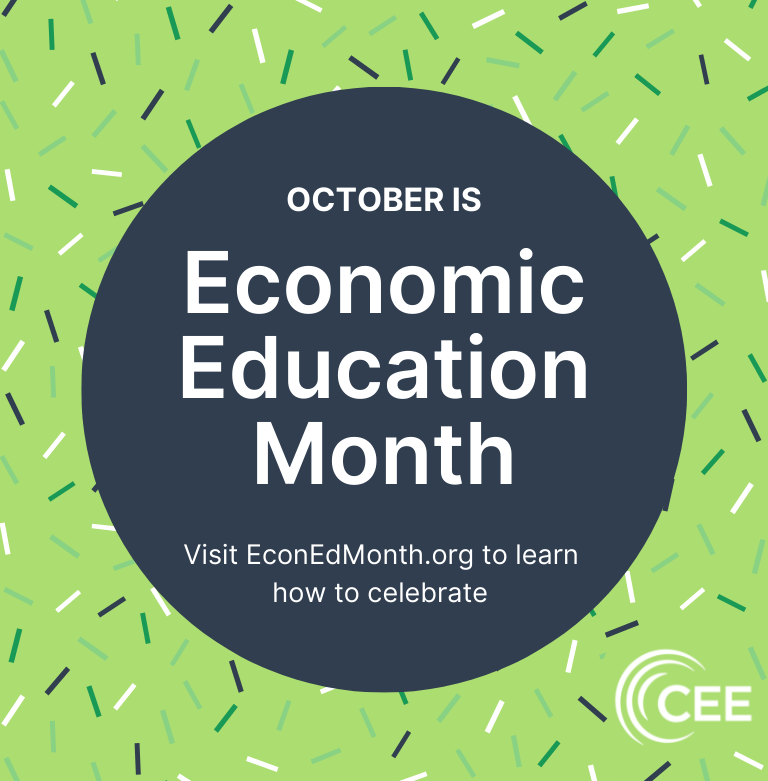Policy & Advocacy for Financial Education
Advocating for more and better economic & personal finance education nationwide

As a national leader in economic and personal finance education, we advocate for:
- Required coursework in economics and personal finance for K-12 students
- State standards that serve to prepare students to compete in an increasingly global economy
- Legislation and education policies that support high quality training programs for teachers


Survey of the States
CEE believes there should be high school course requirements in economics and personal finance in all 50 states and the District of Columbia. CEE’s important, biennial report brings attention to the critical importance of economics and personal finance education by documenting its status state by state.
FinEd50
CEE, in partnership with Visa, has created FinEd50, an initiative that advocates for positive change in education policy at the state level. We invite non-profit organizations, researchers, and corporate partners to join FinEd50.


Econ Ed Month
October is officially National Economic Education Month! During this month, we promote the importance of teaching economics in our schools through economic focused workshops, a student contest, and community events.
Become an advocate for education
Would you like to see new standards implemented in your state? Use our Advocacy Tool Kit to make your position heard.

Notable recent advances in personal finance and economics education
Arizona enacted legislation to establish a State Seal of Personal Finance Proficiency
The law instructs the superintendent of Public Instruction (SPI) to establish a State Seal of Personal Finance Proficiency Program to recognize public school graduates who have attained a high level of proficiency in personal finance.
Florida introduced legislation to require a stand-alone financial literacy course for graduation
The bill requires child transition plans to address financial literacy by addressing specific options for the child to use in obtaining services, including housing, health insurance, education, financial literacy, a driver license, and workforce support and employment services.
Iowa added one-half unit of personal finance literacy.
All students will soon have to complete at least one-half unit of personal finance literacy as a condition of graduation. The curriculum will address: savings, including emergency fund, purchases, and wealth building, understanding investments, including compound and simple interest, liquidity, diversification, mortgages, wealth building and much more.